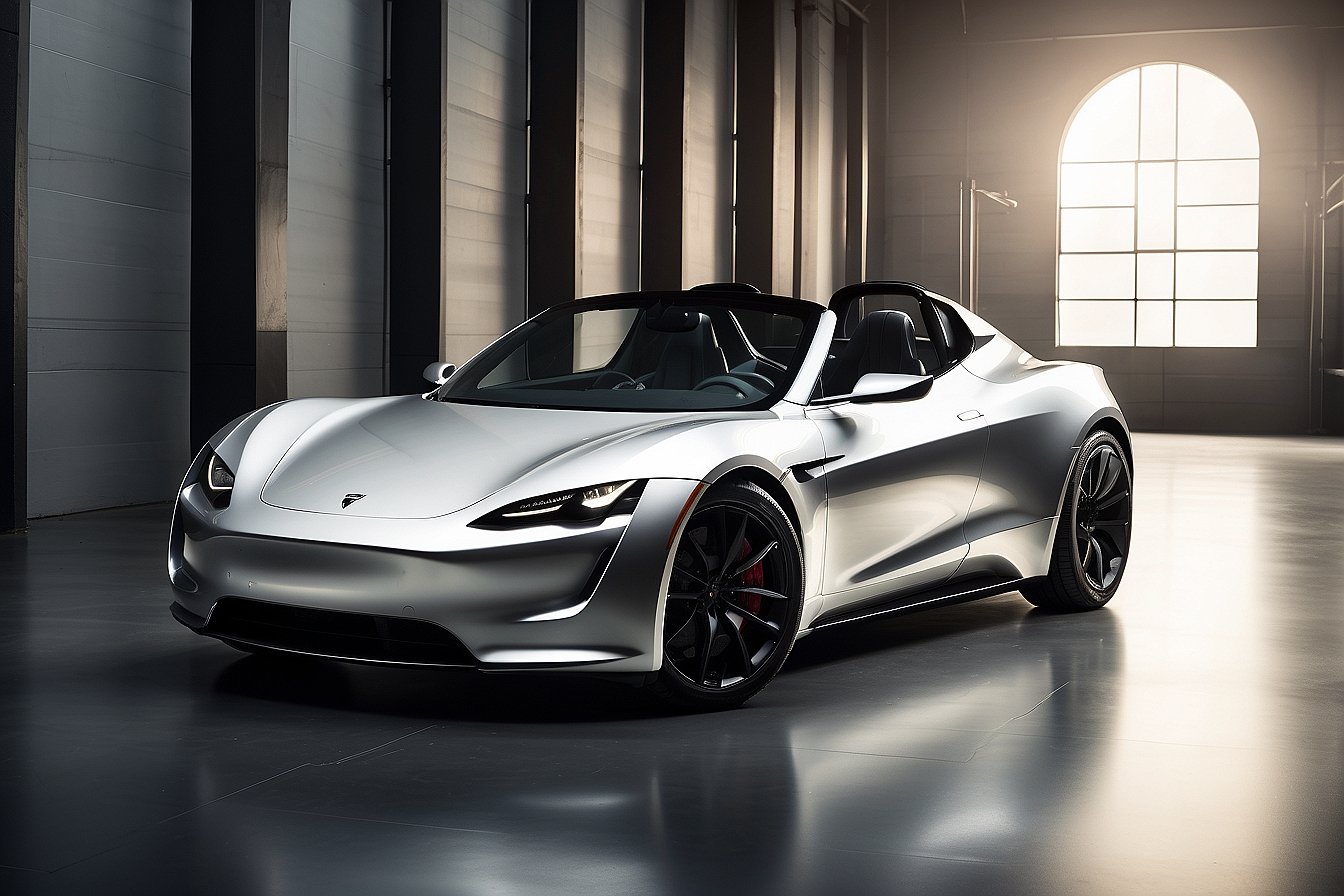Tesla has undoubtedly made massive strides in the electric vehicle market over the past decade. After launching the first fully electric sports car, the Tesla Roadster, back in 2008, Tesla continues to push the boundaries of electric mobility. However, as we move into 2023, Tesla is facing growing competition in the EV space.
In this article, we’ll look at some of Tesla’s biggest competitors and the threats they pose to Tesla’s dominance. Whether it’s more affordable EVs, luxury electric vehicles, electric trucks, or electric SUVs, Tesla now has serious contenders in every market segment.
Lucid – The New Luxury Electric Vehicle Maker

One of Tesla’s most serious competitors in the luxury EV space is Lucid Motors. Founded in 2007, Lucid unveiled its first vehicle, the Lucid Air, in 2020. The Lucid Air is a premium electric sedan designed to compete directly with Tesla’s Model S.
The Lucid Air offers an industry-leading range of over 500 miles on a single charge. It also features gorgeous interior design and luxury appointments more similar to a Mercedes S-Class than a Tesla Model S. Early reviews praise the Lucid Air’s ride quality, handling, and overall refinement.
Lucid aims to sell over 100,000 electric vehicles annually by 2025. While still tiny compared to Tesla’s sales, Lucid is an EV startup to watch as it rolls out new electric models in the coming years. The company has the technology, talent, and funding to become a serious contender in the luxury electric vehicle market.
Rivian – The Electric Truck & SUV Startup

While Tesla plans to launch the unusual-looking Cybertruck sometime in the future, Rivian has beaten them to market with electric trucks ready now.
Rivian, founded in 2009, debuted the R1T electric pickup truck in 2018. Deliveries of the R1T began in late 2021, making it the first electric truck available to consumers. Early reviews have been glowing, with many calling the R1T the best electric truck on the market.
In addition to the R1T truck, Rivian produces the R1S – a fully electric SUV. The Rivian R1S and R1T deliver up to 300+ miles of range, vegan leather interiors, and powerful quad-motor AWD performance. Rivian vehicles also feature clever storage solutions and can even power tools/appliances through their battery packs.
Rivian has major financial backing from Amazon and Ford and is ramping up production at its Illinois factory. While still small, Rivian’s compelling electric trucks and SUVs make them a serious long-term competitor as America moves towards electric mobility.
Ford – The All-American Automaker Goes Electric

What about old-school American automakers like Ford and General Motors? Can legacy car companies challenge Tesla as they embrace electric vehicles?
Ford is aiming to compete with the Mustang Mach-E, an all-electric SUV with styling inspired by their famous Mustang sports car. The Mach-E promises up to 300 miles of range and performance that rivals the Tesla Model Y. Ford has also invested billions developing more electric models, with plans to sell over 1 million EVs annually by 2025.
The Mustang Mach-E won several “Electric Vehicle of the Year” awards and is the first viable Tesla competitor from Detroit. Ford has the marketing power, manufacturing capability, and desire to displace Tesla as America’s top-selling electric vehicle brand. They’ll continue leveraging their iconic nameplates like Mustang and F-150 to attract EV buyers in the coming years.
More Chinese Electric Vehicle Makers Arriving in the US

China is by far the global leader in electric vehicles, with dozens of homegrown Chinese EV startups. While most Chinese EVs are not yet sold in North America, several brands will enter the US market in 2023 and beyond.
NIO is one of the most successful Chinese electric automakers, selling premium smart EVs in China. NIO is planning to introduce its electric SUV and sedan models in the US in 2025. BYD is another giant Chinese EV maker now selling electric buses and commercial vehicles in America. BYD aims to offer electric cars and hybrids to US consumers soon.
Chinese companies have the advantage of huge scale, government support, and access to raw materials. As Chinese brands enter the US, they’ll challenge Tesla with similarly high-tech EVs at lower price points. This could significantly intensify competition in the mid-priced electric vehicle segment.
The Outlook for Tesla Facing New Competitors
Tesla undoubtedly faces growing competition in all market segments as the electric vehicle industry matures. However, Elon Musk didn’t build Tesla to be just another car company. Tesla Energy, Autonomous Driving, and even the quirky Cybertruck show he still aims to innovate rather than just copy the competition.
It’s also important to remember that today’s rivals like Lucid and Rivian are still tiny compared to the scale of Tesla and its gigafactories. Tesla’s massive charging network also provides a huge advantage over new EV brands. Still, Tesla must continue improving their technology, quality, and value to fend off rivals aiming to become the new leader.
The bottom line is that while Tesla isn’t going away, buyers now have far more electric vehicle options than just five years ago. Greater competition will accelerate innovation and make EVs more affordable. For consumers, more choice and falling EV prices means the real winner of this intensifying competition is planet Earth.
Key Takeaways
- New EV startups like Lucid and Rivian are seriously challenging Tesla with compelling luxury and truck models.
- Legacy automakers like Ford aim to leverage their brands and manufacturing scale to sell millions of EVs.
- Chinese electric vehicle makers will enter the US market with budget-friendly high-tech models.
- More competition will force Tesla to keep improving and make EVs mainstream sooner.
FAQs:
Q: What are the top competitors of Tesla in the electric car industry?
A: The top competitors of Tesla in the electric car industry include Lucid Air, Rivian, BMW i4, Audi e-Tron, and Mercedes-Benz EQS, among others.
Q: How does Lucid Air compete with Tesla?
A: Lucid Air competes with Tesla by offering high-performance electric vehicles with features like long-range capability, fast-charging technology, and luxurious interiors that rival Tesla’s offerings.
Q: Who are the biggest competitors of Tesla in the electric car market?
A: Some of the biggest competitors of Tesla in the electric car market are established players in the electric vehicle manufacturing industry, such as traditional automakers and new entrants focusing on premium electric vehicles.
Q: What are the main features that set Tesla’s competitors apart in the electric vehicle industry?
A: Tesla’s competitors are known for offering smart electric vehicles with advanced technology, luxurious design, and strong performance, aiming to give Tesla a run for its money in the luxury electric vehicle segment.
Q: How does Tesla stand against its competitors in terms of innovation and technology?
A: Tesla is recognized as an electric vehicle manufacturer that has set industry standards with its innovative technologies, while its competitors are striving to catch up and introduce their own advancements to compete with Tesla.
Q: What are some of the key players in the electric vehicle industry that compete with Tesla?
A: Aside from traditional automakers, there are new players in the electric vehicle market, such as startups and established companies, all vying to compete with Tesla by offering premium electric vehicles with advanced features and performance.
Q: How does Tesla fare against its competitors in the premium electric vehicle segment?
A: Tesla faces stiff competition in the premium electric vehicle segment, as its competitors strive to deliver electric vehicles with features and performance that can challenge Tesla’s dominance in this space.
Q: What are some of the notable electric vehicle competitors that give Tesla a tough challenge?
A: Competitors in the electric vehicle market are introducing models with features and capabilities that pose a significant challenge to Tesla, as they aim to gain a foothold in the market and carve out a share of Tesla’s customer base.
Q: How is Tesla’s position being impacted by the increasing competition in the electric vehicle industry?
A: The growing number of electric vehicle competitors is shaping the landscape of the industry, as the competition intensifies and forces Tesla to continually innovate and evolve to maintain its position as a leader in the electric car market.
Q: What differentiates the biggest competitors of Tesla in the electric car industry?
A: The biggest competitors of Tesla in the electric car industry differentiate themselves by offering a diverse range of electric vehicles, innovative technology, and a focus on performance, all aimed at challenging Tesla’s position and capturing market share.









Leave a Reply